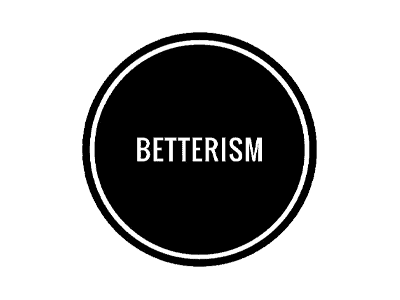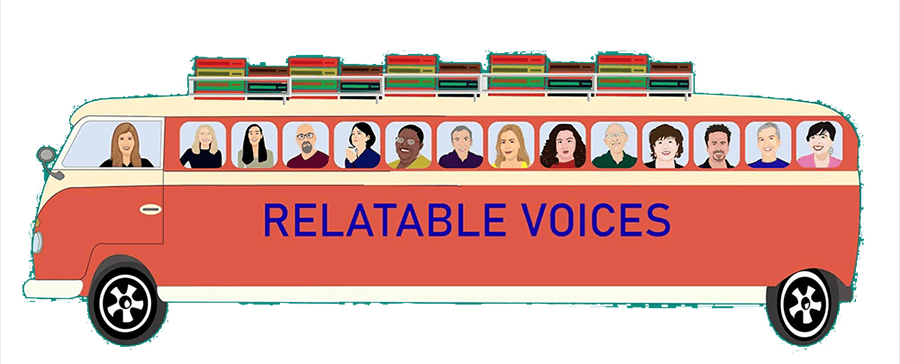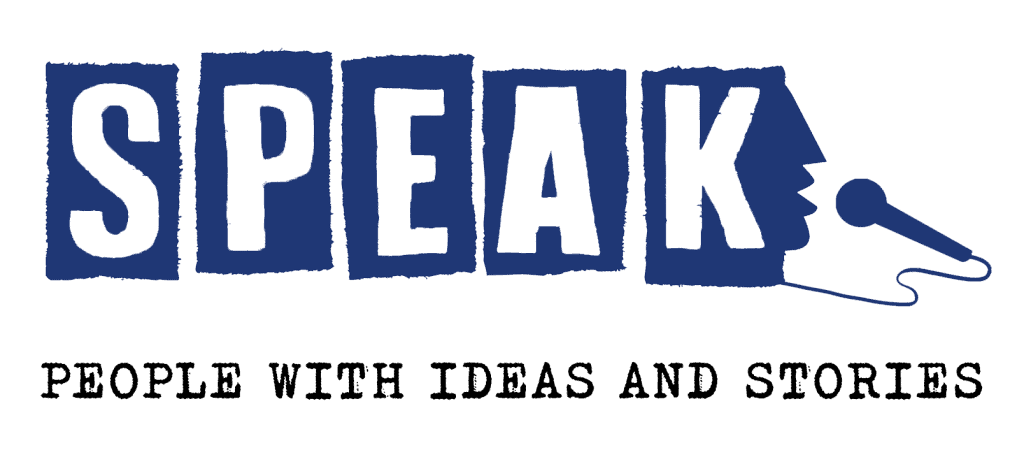You don’t have to follow someone else’s definition of success to create a life that lights you up. Sitting down with Dr. Michelle Montero reminded me of the power in honoring your personal values—especially when the world expects you to hustle nonstop. Michelle’s journey from academia to entrepreneurship shows what happens when you stop living in survival mode and start trusting yourself deeply. We talked about mindset shifts, the weight of invisible expectations, and how choosing joy can be one of the most radical things you do. If you’ve ever felt stuck in a life that looks “right” but doesn’t feel right—this one’s for you.
About Our Guest:
Dr. Michelle Montero, a licensed clinical psychologist and sports psychology consultant is dedicated to helping individuals, teams, and organizations unlock their full potential.Whether you’re an athlete navigating career transitions, a professional striving for resilience, or someone seeking personal transformation, I’m here to guide you.
Social Media Links:
- Website: www.alchemyperformanceconsulting.com
- LinkedIn:https://www.linkedin.com/in/dr-michelle-montero-a9027810/
About Me:
I have cared for many family members across the life span, experiencing the joys and challenges of child-rearing, the poignance of caring for parents, friends, and elder partners. I realized that I could not handle the stress of family caregiving 24/7/365. It was time for a new approach to caring. My health and happiness were slipping away. This is how Think to Thrive for Caregivers evolved. Let your mind meet your heart so you don’t lose track of your life.
Connect with Me:
https://www.deborahgreenhut.com/
https://www.linkedin.com/in/deborahgreenhut01/
Thanks for listening!
Thanks so much for listening to our podcast! If you enjoyed this episode and think that others could benefit from listening, please share it using the social media buttons on this page.
Do you have some feedback or questions about this episode? Leave a comment in the section below!
Subscribe to the podcast
If you would like to get automatic updates of new podcast episodes, you can subscribe to the podcast on Apple Podcasts or Stitcher. You can also subscribe in your favorite podcast app.
Leave us an Apple Podcasts review
Ratings and reviews from our listeners are extremely valuable to us and greatly appreciated. They help our podcast rank higher on Apple Podcasts, which exposes our show to more awesome listeners like you. If you have a minute, please leave an honest review on Apple Podcasts.
Transcript
Michelle, hello. It's great to have you here listening today, and my special guest is Dr Michelle Montero, who is a clinical psychologist who has a lot of great experiences working with caregivers and all the subjects around it. So I'm going to give Michelle a moment to introduce herself and tell us a bit about how she came to do what she's doing. Michelle, Hi,
Deborah Greenhut:Dr Michelle Montero: thanks for having me. So I'm Dr Michelle Montero. I'm a clinical psychologist in Chicago, Illinois, and you're absolutely right. I do I work with a vast array of clients, and many of them are caregivers, and something that people don't know a lot about me is that I actually started my psychology career getting a job when I was 15 as a caregiver. So I started my experience working at an assisted living facility, and I was a caregiver through like, the end of high school, college and grad school, and then prior to getting my doctorate and getting my license here in Chicago, I ran an assisted living facility for those with various forms of dementia. So I have about 15 years of experience in actual elder care and caregiving myself, which I think is really unique when then you're working with individuals who have gone through it. I've worked with many families who have, you know, really been trying to figure out what they're going to do. Their parent doesn't want to go into a facility, but they really need to, or, you know, maybe they decide to pull them out of a facility and making all those really important life choices. So I've sat with many people, and then I've worked with them in my clinical office as well. So very, very
Deborah Greenhut:important work. What do you think accounts for the resistance that people have to changing the idea of what they thought was going to happen? What, you know, what go, what goes into that mindset that that makes us not do the right thing for ourselves, whether we're the caregiver or the patient. I
Deborah Greenhut:Dr Michelle Montero: think that's like a really, that's a really, really good question, and it's complex, and it's layered, and I think it starts with just being really human, and we're designed to be sort of self focused. So when, when something is really emotional, right? Like we are frontal lobes, other things kind of shut down, the the our reasoning and sort of like the the periphery kind of goes away, and we're really focused on preserving ourselves. So I think in situations where whether it be our ourselves that's doing the caregiving, or we're the one that is maybe needing the caregiving, we're really focused on what is going on for us, and it isn't always top of mind to think about what's going on for the other person. I think for, let's say the sandwich generation, or, you know, adult children caring for their parents, oftentimes it's a reality that we don't want to confront. Oh no, our loved one is, is aging. And I think about my own parents, right? My dad is, is snow capped. But in my mind, I see him with this very, very dark hair. My niece and nephew, who are six and nine, they're always like he doesn't have dark hair. In my mind, I still see him as my my dad, who was younger than I am now. So thinking of him aging hurts my heart and pulls on those emotions. I think also, in that position, we think about, like, the life that we still want to live, and maybe what, what will have to sacrifice. And it is not out of, you know, I don't oftentimes, it's not out of, you know, malice, or it's just sort of like, oh my gosh, like, I, this isn't what I this wasn't my fantasy, I think, for those that are aging and being a caregiver and sitting with so many families and then working in the clinical aspect of things is, I think the loss of identity. You know, ageism is a real thing, and people are off. It's a very invisible population. I was speaking with somebody earlier today who said, I don't know when it happened, but people just stopped seeing me. And you know that is heartbreaking, and it will happen to all of us. So I think there's a dignity piece. Oftentimes, the aging have already lost a lot of their loved ones and their friends, so they're very isolated, then going into maybe a community, it's Well, who am I going to know? I don't trust these people. This is scary. And suddenly your choices, you don't feel like you have agency anymore. And I think those things combined make it very murky and very emotional. Yeah.
Deborah Greenhut:So important. 73 now, as I am, I'm starting to feel that invisibility in and I'm thinking, Well, where is that coming from? I'm the same as a parent, and it just really is so insidious, and it just creeps up on and if you're also a caregiver at that point, it's very hard to get your hand up in the air and say, Wait, I need an explanation. I'm sitting going to have to go home with this person and figure this out, and I can't do that without some more help from you. So I'm not just the car driver here, you know? And right? A lot of times caregivers are are kind of sidelined, which becomes a problem for people. But I remember that feeling of watching my dad become invisible. It was, you know, like watching a movie where he had always been the life of the party, especially immediate family, which was very large. He was the joke teller and the, you know, all of our celebrations in the family, the patriot, yeah. And one day after my mother passed away, he'd become a lot Meeker, but he was still telling his jokes and so on, and I noticed that people weren't listening to him anymore. And
Deborah Greenhut:Dr Michelle Montero: you used a really great word earlier. It's like, it can be very insidious until it isn't, and then it's kind of like, where did we get? How did we get here? And I think there's a lot of isolation on, on on both sides of the continuum that really isn't addressed. Isolation, literally from maybe hearing is going and so you're the life of the party, and everybody was looking at you, and suddenly you can't hear them. Or maybe you hear them. What you hear may not be exactly what they're saying. You know, certain words are are jumbled. And so what you think somebody is saying isn't actually what they're saying. Then suddenly the people that were listening to you aren't taking you a series anymore, and they kind of look at you like, oh, he doesn't even know what he's talking about. And and it just sort of breaks down. And, you know, I have chills thinking about it, thinking about your dad, thinking about why don't people notice me? Because it it, it's everyone wants to belong, that that never goes away. And so I think that breakdown can be really, really harmful, until people just kind of withdraw. Yeah,
Deborah Greenhut:and I think that double invisibility, the caregiver, who might be an child and the parent are both, you know, just not noticed by the people who are supposed to be professionally taking care of them. Yes, you know, odd kind of not functioning very well relationship, right? If it's just as it happens all the time, maybe it's not, except it would be so much better if people could take the time. And I know we have all those pressures of the paperwork that has to get done and the other thing the office and the profession that have to be attended to, but ignoring people at that stage where so much is confusing has become pretty frustrating to me. Yes and like, information
Deborah Greenhut:Dr Michelle Montero: is limited and it's hard to find. You know, I, I've worked with several individuals whose parents had different, different forms of dementia and and they're just so overwhelmed, like I don't even know where to go for this information, or one person is sending them to another person, or I know, Kimberly and other people today have talked a lot about, like, links not working, so you're just overwhelmed with, okay, I don't know who to go to, and then I get something and a link isn't working, and I'm so overwhelmed, I'm so tired, I don't even know where to look, but when I look, it's not there. There's all these barriers to entry, which I think can really shut a person down as well, and going back to your point of just not having time, one of the things that I, you know, I just find, is one of them is not going to change what has happened, but I think goes a really long way, is just slowing down and connecting with people. So we're also rushed. But when you when somebody slows down, and even if you don't know the right resource to send somebody to slow down and connect with them, sorry, this is going, this is this is happening with your family. Deborah, like, let me just take a second to to hear what's happening for you and that people feel seen, right? Or, you know, mentioning somebody's name. I can recall working in many of the different facilities that I've worked and just sitting and being like, there's Mary, my favorite resident, right? And saying her name and looking up and just, you could see the transformation in her, just feeling somebody knows who I am, they said my name, and they're connecting with me. It's, it's just a small thing that you can do, but it goes a long way. And at the end of the day, all of us want to feel connected.
Deborah Greenhut:Yeah, I think what people don't realize so much, and they start to feel it at some. Point in the caregiving is that the relationship really comes first. And I think some of the things people worry about are, I don't know how to operate medical technology change an IV, and they get, yeah, occupied with those things which could be taught or perhaps done by somebody else, instead of the resources, which is a whole, whole other problem, yeah, yeah, to try to do everything yourself is often to sacrifice that relationship, the connection that is probably, in the end, much more important. I mean it my my mother passed away, and I moved in with my dad right away, because I knew he wasn't going to be able to he was old, much older than she was, and he couldn't handle anything. But at first I was so preoccupied, because we had the estate to manage, and we had all of his medical situation, which was so complicated, and bipolar depression and heart disease and and it was just, I don't know how my mother put, you know, put the effort in at the end she was so sick with emphysema, so I don't know how they were. They were a doctor and a nurse, and they care for each other, nobody else. So there I am with absolutely no no medical skills. So I move in, and I was like, slashing and burning and knocking things over because I had no idea what was important. And, yeah, unfortunately, when by the time I realized I wasn't going to have very much time with him, he was already, of course, in the hospital, you know, having had the last heart attack and and I was going to be in hospice there. And he didn't. They didn't want to tell him. I guess the his colleagues felt they knew best, but he wasn't. I think he was aware, because he was a pretty smart doctor and he was didn't, but he till the end. I think they wanted him to feel there was still hope. They just didn't want to take from him. So that was their their but I only realized pretty well into that process, I'm not going to get the time that I was scrambling to get. Yeah. Thanks, yeah. So I I hope that you know, in the future, if I ever have to do the caregiving thing for someone else, again, I've done it a few times, but relationship has to come first all, the other things are just much less important, all the tasks of it. So
Deborah Greenhut:Dr Michelle Montero: yeah, and that, it's so true. And it's also when you're in it that's so hard to remember. It's so hard to remember. And you know, just hearing your own story, right, where you're like, oh my gosh, they were a nurse and a doctor, and they took care of each other. And here I came in, it's like, these are my parents. What? I don't know how they've been maintaining this, but they have, and now I have to catch up, right? And not only am I catching up, but I'm also losing a parent, and you're an adult, but they're still your parents. That's never gonna not hurt. And so that's all very overwhelming. And I think for those of us that are maybe like on the outside, that are watching somebody that was in your position, or, you know, another one that is is doing the caregiving, to kind of remind one another that it's okay to take a minute, right? Like, this is confusing. This is really confusing. It's actually kind of meant to be confusing. It's not designed to be easy, and that's unfortunate. And take the time, like, it's okay to just sit and read to your dad, or, you know, I'm thinking of a woman who loved show tunes, and so we would just sit with her and, like, listen to show tunes, and she would just lay that she was non verbal, and she would just lay there, and you could just see, like she had another stroke. And so the one side of her face was working, the other was not. It was paralyzed. And you could just see, like a gentle smile, and you could tell she was happy and content, right? It's like those small things that that connection of humanity that matter, and when we're the ones that are kind of carrying the burden, we sometimes need others that are not in it to remind us it's okay to slow down. Let me take this for a second and you just put things so show to steer to your loved one.
Deborah Greenhut:Not every caregiving situation ends in death, but for many people, grieving already kicks in before, that way before, especially in elder care situations. What advice do you have for caregivers who start feeling that on top of all the other load that they are carrying? Yeah,
Deborah Greenhut:Dr Michelle Montero: that that's a question that I get put like get asked quite a bit, and the idea if any of my clients ever were listening to this, they'd laugh, because we talk about the idea of like, pre grieving, and there was like, I'm pre grieving, and my response is, like, you are and and you can't like you can't. I mean, you are, you can you can be. You can start that grief process early. That. Absolutely is a thing that is not going to take away from the grief you feel later either, right? That's what. And that's a good point. Not every caregiving ends in in a death. There's lots of other ways of caregiving as well, and there is grief involved. And so I, again, I feel like always finding a way to slow down. If you can't remind yourself, have others remind you to slow down. Put little reminders in your phone to slow down and and to validate yourself. Our minds are the only thing that we hear constantly all day that's not interrupted. The only way it's interrupted is if we tell someone right like this is what I'm thinking in here. So it's an echo chamber. And if we don't interrupt that voice and validate self validate, it makes hearing the external validation just that much harder to hear as well, or we're only relying on that. So to say, Yeah, I am grieving, and grief, I was told by by somebody a long time ago that grief, the level of grief that you experience, is is often the amount of like complicated love that you have as well for this person. And it's a real honor and testament to the relationship, whether it was like a really easy relationship, or it was a complicated relationship. If it's complicated, your grief is likely to be complicated. If it was a great relationship, you're going to feel great grief, right? And like all of those things, and it's kind of a testament to this happened, and this is real, and I'm hurting, or I'm angry, or this is uncomfortable, and we as humans are designed to feel so let yourself feel it. Yeah,
Deborah Greenhut:I was talking with someone the other day about that very thing, and she said that while she regretted that her father had passed away, she now had on her phone from spending those weeks with him, video of him telling a joke, or a video of him about the beautiful yard that he had, and all of those memories, which is so nice that we can have that now, I have very few videos of my dad because of the time, you know, yeah, 30 years ago at this point, and we just did, you know, the phone was not, not the main part, the other part of my hand,
Deborah Greenhut:Dr Michelle Montero: you have a camera roll just ready to go.
Deborah Greenhut:And have that ready now. So if you would have wanted me to photograph him. Now, everybody's used to it, but I don't think we Yeah, so I only have a few, but I hear his voice in my head every day. It's never going that's both a comfort and sometimes it's a little
Deborah Greenhut:Dr Michelle Montero: jarring to Yeah, like a trigger,
Deborah Greenhut:in a way jarring. It tells me I still have a dad, and I didn't completely cover as his mother or something, or his parent, which I think is, is one of the tough parts of caring for your parents that your team fixes, and it's unavoidable, but it doesn't feel right to anybody involved. Yeah, so those boundaries get
Deborah Greenhut:Dr Michelle Montero: that role reversal. Mm, hmm, yeah. So
Deborah Greenhut:that's another whole area, and I can see that you and I have a lot to talk about, so maybe we continue this another time. Yeah, close to me. I love that, so I do want to make sure that you have a chance to tell people how to connect with you, because you are providing a really wonderful service that is is so giving and so helpful. So I hope people will find you so how, yeah, well,
Deborah Greenhut:Dr Michelle Montero: thank you. I have a website. It is, it's a little bit long, but it's alchemy performance consulting.com and on there, there's a Contact page, and so you can reach out through there, or my LinkedIn.
Deborah Greenhut:Those are great, and we'll definitely put them in the show. So doctor. Michelle Montero, thank you so much for being my guest today. I learned a lot from listening to you, and I hope to listen to you some more. So have a thank
Deborah Greenhut:Dr Michelle Montero: you so much. You too. My pleasure.
















